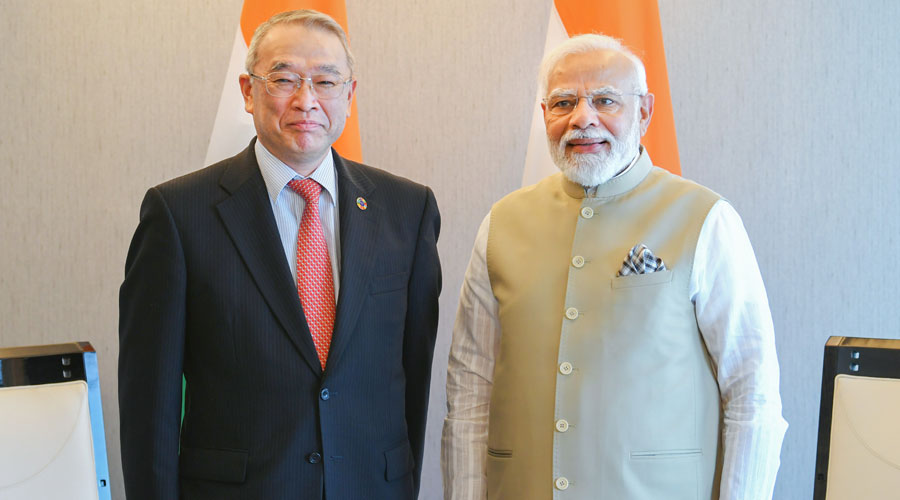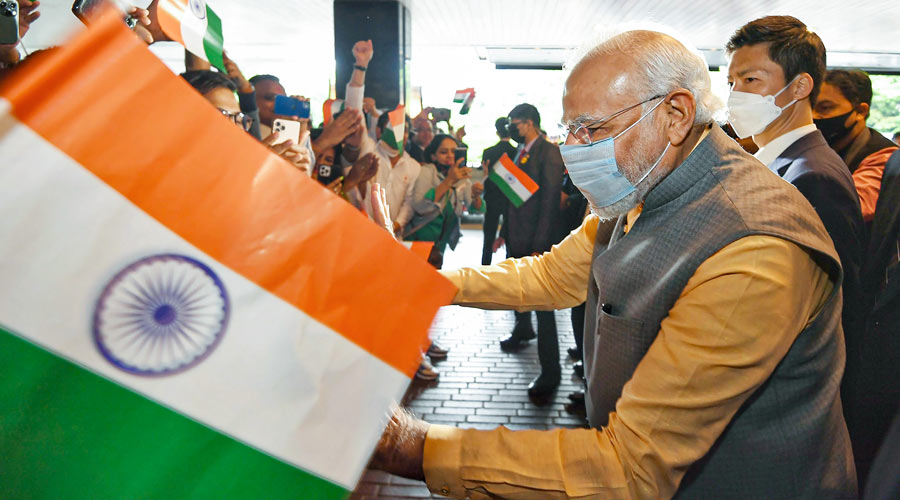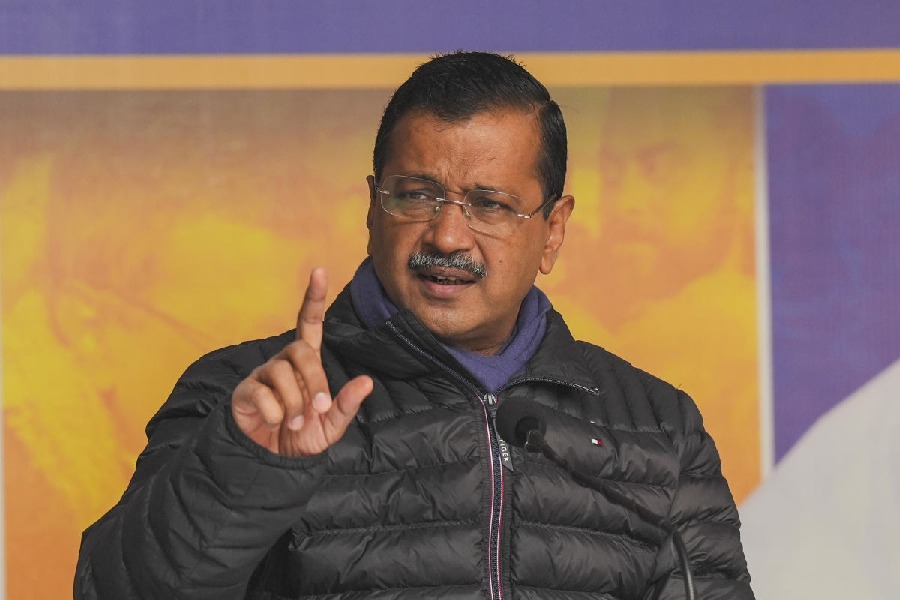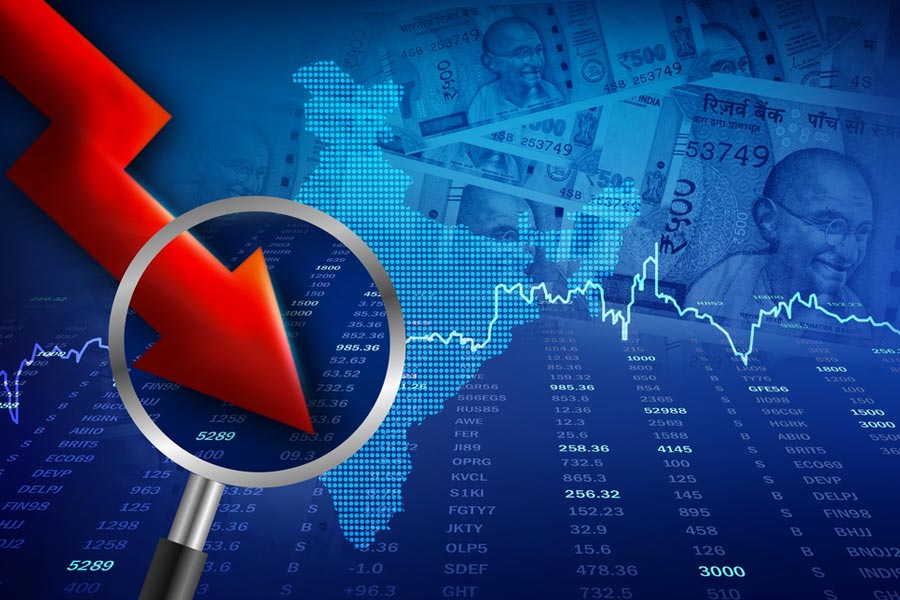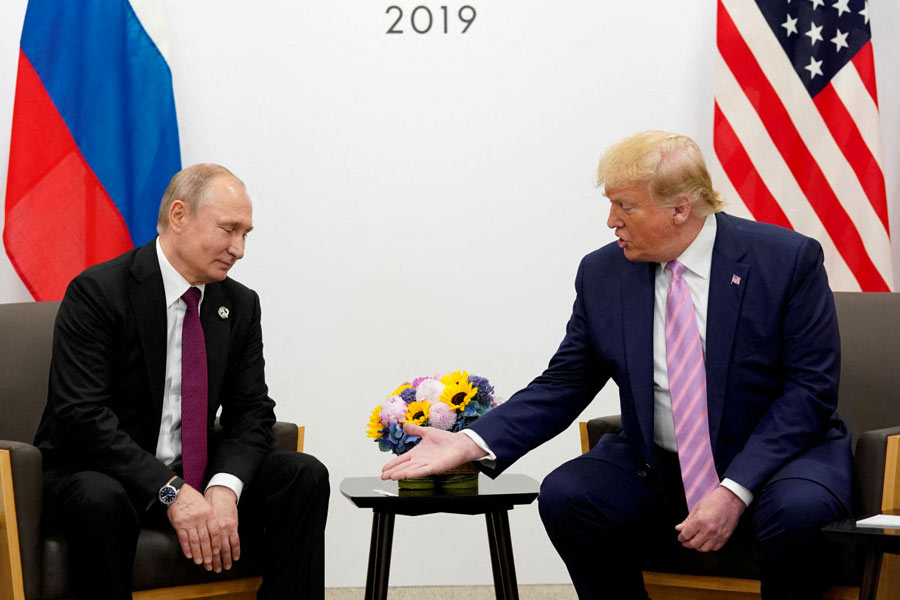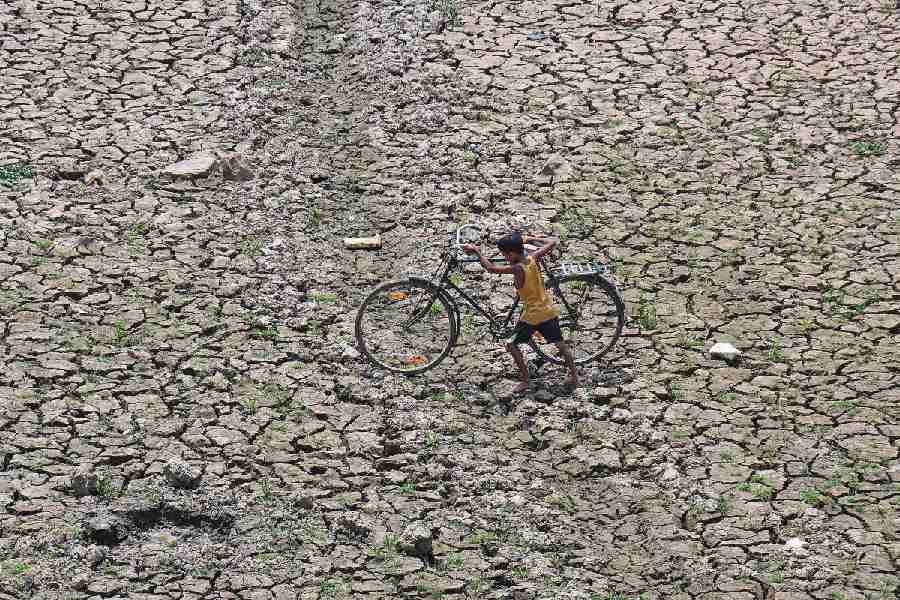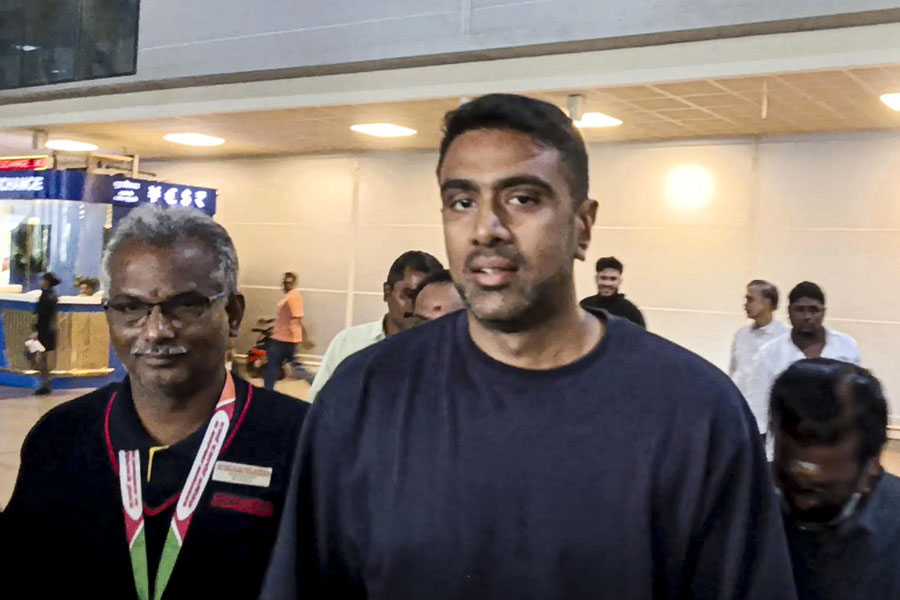Prime Minister Narendra Modi discussed India's reform measures and new opportunities with several industry leaders in Tokyo on Monday, among them captains of a technology multinational and an apparel giant.
Modi met Nobuhiro Endo, the head of Japanese multinational information technology electronic giant NEC Corporation, and the CEO of Japanese clothing brand Uniqlo, Tadashi Yanai.
Modi "highlighted India's reform trajectory. He talked about opportunities in areas such as digital learning, FinTech, infra and logistics networks," PMO India tweeted.
The Prime Minister appreciated NEC's role in India's telecommunication sector, especially in undertaking Chennai-Andaman & Nicobar Islands (CANI) and Kochi-Lakshadweep Islands (KLI) OFC projects, MEA said in a statement.
He also highlighted investment opportunities under the Production Linked Incentive (PLI) scheme.
"They discussed various reforms being undertaken to enable ease of doing business in India including in industrial development, taxation and labour," the statement said. "They also discussed opportunities in India in new and emerging technologies."
Endo spoke about opportunities in India in areas such as smart cities, emerging technologies and an innovative effort to encourage learning of Japanese in India.
The MEA also issued a tweet on his meeting with Uniqlo, the retailer in textile manufacturing.
"Boosting India's textile sector. PM @narendramodi met CEO of Fast Retailing, the parent company of @UNIQLO_JP, Tadashi Yanai," MEA spokesperson Arindam Bagchi tweeted. "Discussed Uniqlo's growing presence in India and investment opportunities for textile manufacturing in India under PLI scheme."
While Yanai appreciated the entrepreneurial zeal of the people of India, Modi asked him to "take part in the PM-Mitra scheme aimed at further strengthening the textiles sector," PMO India tweeted.
The PM Mega Integrated Textile Regions and Apparel (PM MITRA) Parks Scheme is aimed at developing textile parks through a special purpose vehicle owned by the central and state government and in a public-private partnership (PPP) model.
Each park will have an incubation centre, a common processing house and a common effluent treatment plant and other textile related facilities, such as design centres and testing centres. The Master Developer is not just required to develop the industrial park but also maintain it during the concession period.

